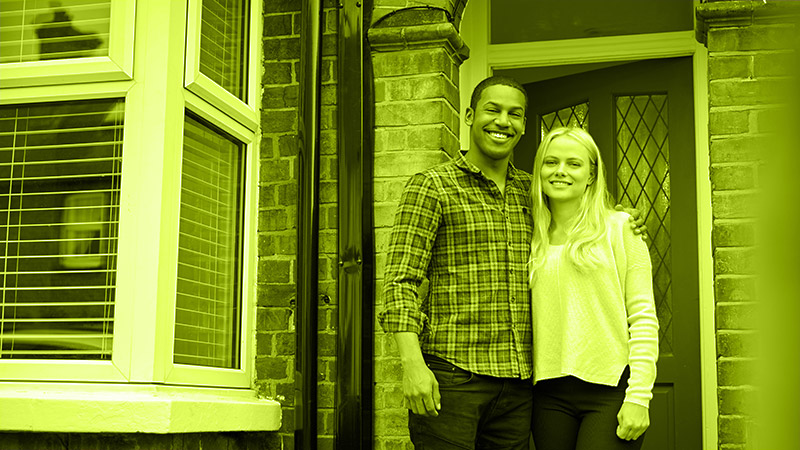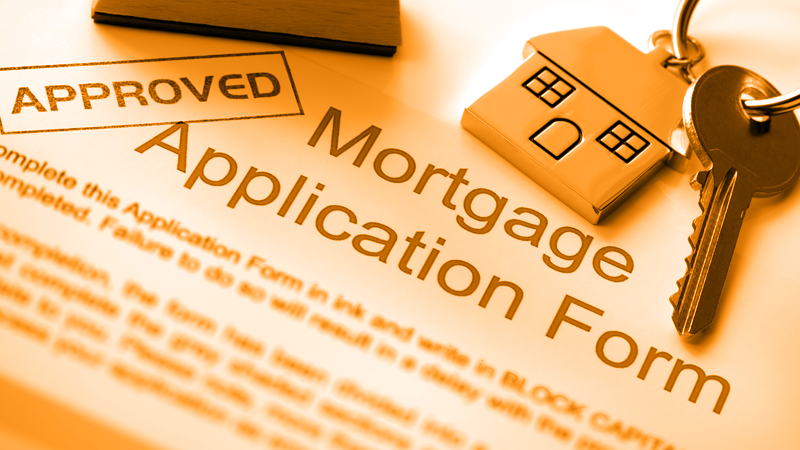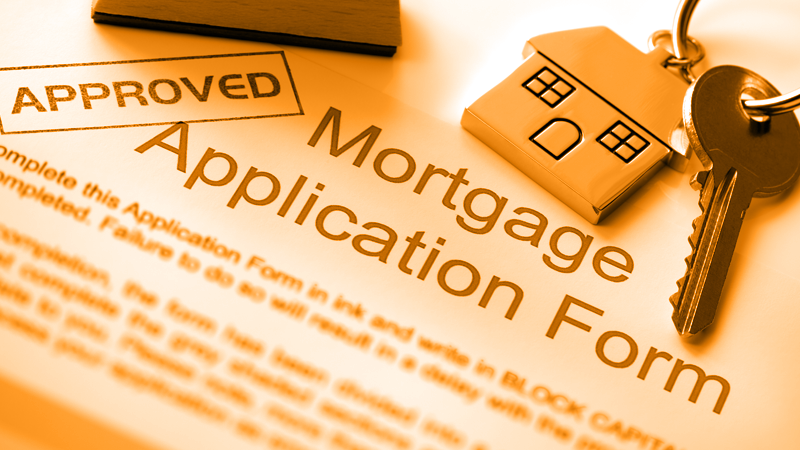Unfortunately, if you have missed a loan repayment you may have a default on your credit report, resulting in bad credit.
A default is the terminology used when a negative payment record is placed on a credit report due to unpaid arrears.
Typically, when a default is applied, the lender no longer views the person as a customer, but as a debtor instead.
Defaults provide a warning light to prospective lenders regarding the level of potential risk involved as they demonstrate that the borrower has had a previous history of mismanaging scheduled payments.
In this guide, we will explore the impact of a default and the process of obtaining a mortgage with a default on your credit history.
Can I get a Mortgage with a Default?
Firstly, if you are in the position of seeking a mortgage but knowing that you have a previous default recorded on your credit report, it is important not to panic and to understand that every lender will take a different stance.
Defaults are a common reason for a mortgage application to be declined, especially by high street lenders, however simply because one lender rejects a mortgage application, does not mean that it would be the end of the journey.
To either take that first step onto the property ladder or to re-mortgage and move is still possible, it’s simply about finding a lender that has criteria compatible with your circumstances.
There are mortgage lenders that specialise in helping customers that have adverse credit and will help you find a mortgage with defaults on credit file.
However, should you already have had a mortgage application be declined, it is important to establish the full reasons why so that actions can be put into place to rectify the concerns, before making any further applications.
Each mortgage application would add a further marker to a credit file and therefore the next steps should be carefully managed.
Therefore, at this stage, it would be highly recommended that advice from an Independent Financial Advisor is sought to review the personal circumstances, details of any defaults or declined applications, and offer specialised financial advice to discuss other options available.
Financial Advisors are also best placed to find the most suitable option, on the most favourable terms available due to their insight into the lending market however they must be privy to the full circumstances in order to help, therefore it is always best to be open and honest.
If you have an individual involuntary agreement, it is still possible to get a mortgage, for more info, check our guide on how to get a mortgage with an IVA.
Looking for a commercial mortgage with bad credit? You may be interested in the possibility of shared ownership.
Are Some Defaults worse than others?
Quite simply, yes. The severity of default will depend on the type of agreement that payments have been missed within.
There are two types of defaults, depending on the type of credit agreements, as follows:
- Regulated credit agreements – A default may occur following a missed repayment and subsequently, the borrower failing to respond to a Notice of Default issued under section 87 of the Consumer Credit Act 1974. Once a default notice has been received, a borrower would have 14 days to make the outstanding payment, or the default will be added to the borrower’s credit report.
- All non-regulated credit agreements – Where agreements are not regulated, a default recorded on a borrower’s credit report represents that the lender has concluded that the relationship between lender and borrower has broken down.
How Soon After a Default can I get a Mortgage?
A default will remain on a credit report for six years following the event, regardless of any payments made to clear the debt.
Can a Default be Removed from my Credit Report?
If a default reported on a credit report is accurate, it is unlikely to be removed either by the lender themselves or a credit reference agency.
In this case, the default is legally bound to be reported for the duration of six years, after which it will be removed automatically.
However, if the default is incorrectly reported, it can be disputed by directly contacting the relevant lender.
The lender has a responsibility to accurately amend the information if they have made a mistake.
Unfortunately, errors can occur and therefore it is important that credit files are checked regularly to ensure that the information stored on the file is up to date and accurate.
How Soon Following a Default can I Obtain a Mortgage?
The timing of the negative event on an applicant’s credit history will be key.
The longer duration of time that has passed since the default being added to a credit file, will help as the default is less likely to impact the ability to obtain a mortgage and if successful, the mortgage terms offered.
Can I get a Mortgage with a Satisfied Default?
Unfortunately, as we have briefly discussed, the repayment of the debt does not clear the default on a credit file and therefore the duration of time that has passed since the default was recorded is more of a concern to potential lenders.
However, by satisfying a default, a borrower’s credit score is likely to improve, which may in turn assist the hunt for a mortgage as some lenders will categorise the risk involved slightly differently.
Want a mortgage for a rental property? They work slightly differently to regular residential mortgages, learn all about them in our buy to let mortgages with bad credit.
How Much Can I Borrow If I Have a Default?
Typically mortgage lenders who are willing to lend to those with adverse credit history may have tighter affordability checks than high street lenders which may impact the total value of any mortgage offer.
Should the maximum level of borrowing offered to be limited due to risk factors involved, higher deposits are likely to be needed.
Typically, lenders will offer to lend up to x5 your annual income if you do not have any blemishes in your credit history.
If you have defaults, you are likely to find it difficult to get a mortgage approved, but this not mean it’s impossible.
You will usually need to provide a large deposit and will be offered less competitive interest rates as you are seen as a greater risk.
If your adverse credit history is more than 3 years ago, lenders may be more willing to lend up to 4x your annual income.
How can my income affect getting a mortgage with a default?
The majority of lenders accept 100% of your basic salary, but only 50% of overtime and other additional income.
Some lenders will request a minimum of 3 years self-employment, while others are satisfied with just 12 months.
It’s common for lenders to demand those in employment to have been in their current role for at least 1 year.
The mortgage amount will also be impacted by your outgoings and other financial commitments, as these can impact how much you can afford to pay back each month.
Should I Check My Credit History?
It’s always a good idea to check your credit history to see if you have anything else on your file that may negatively impact your chance of having your mortgage approved.
Even though there isn’t a set credit rating that lenders will be looking for, maintaining a healthy credit rating will improve your chances of your mortgage being approved.
Although please note: Different lenders use different credit rating agencies (CRAs) when checking your report.
Therefore, checking your reports at different providers is a good idea as they may vary.
It’s also important to know how many and when any defaults you have taken place.
Lenders will want to know this, as many have a threshold to the amount and severity they will consider.
Where can I find my credit report?
It’s possible to check your credit history for free once annually from each agency.
So, apart from time, there is no barrier to check the information before you submit your mortgage application, especially if you suspect you may have a history that would lead to being declined.
The report will also show you late payments, arrears and the presence of any CCJs, IVAs or bankruptcies, all important to be aware of when preparing to make a new mortgage application.
How to Get a Mortgage with a Default Summary
We have discussed the factors involved with being issued a default and the impact that defaults have on credit files and the ability to obtain mortgages.
As such, it is highly advisable that a copy of a credit file is obtained before applying for a mortgage to check the report for any inaccurate data.
Details of the credit report can also be provided to an Independent Financial Advisor, who can advise the financial options currently available.
Give us a call on 03330 90 60 30 to speak to an advisor, or contact us for mortgage advice that’s personal to you and takes your credit history into account.
That way you’ll know where you stand in the mortgage market and we can guide you on your route to securing a suitable loan.

















